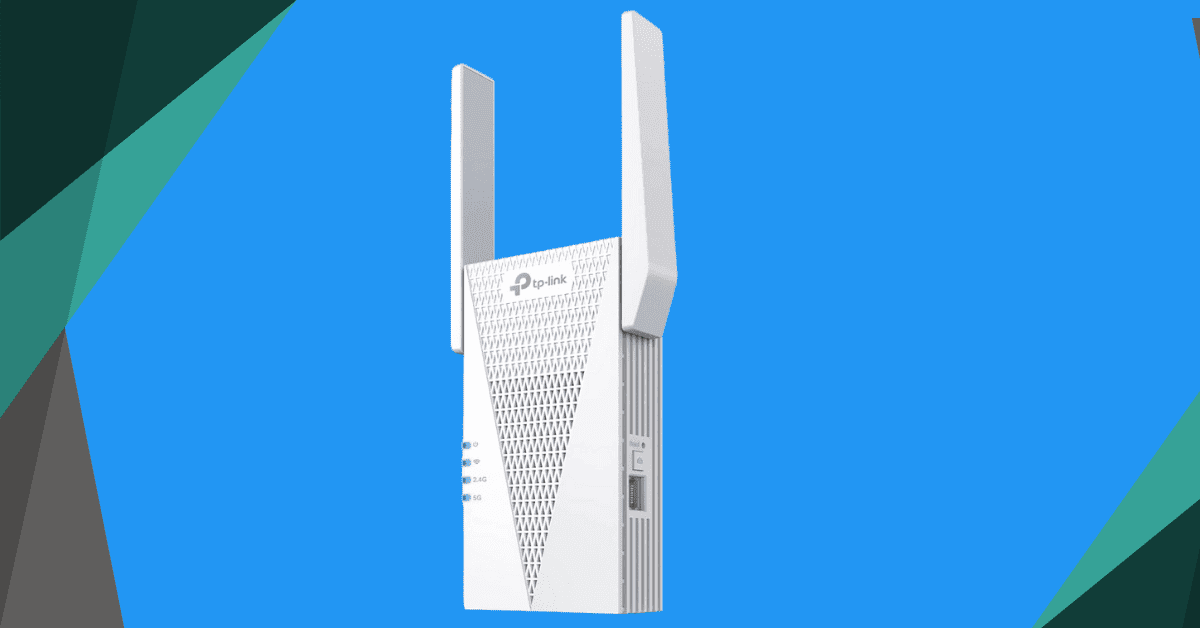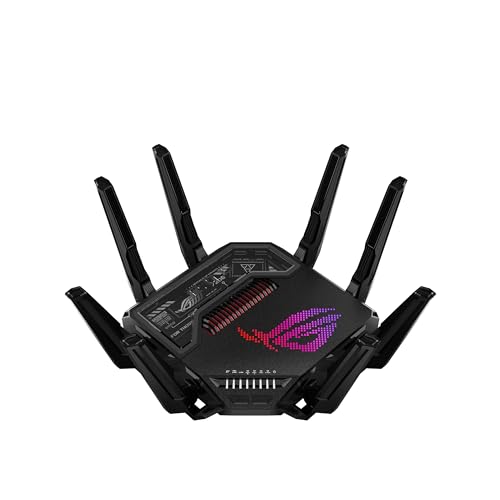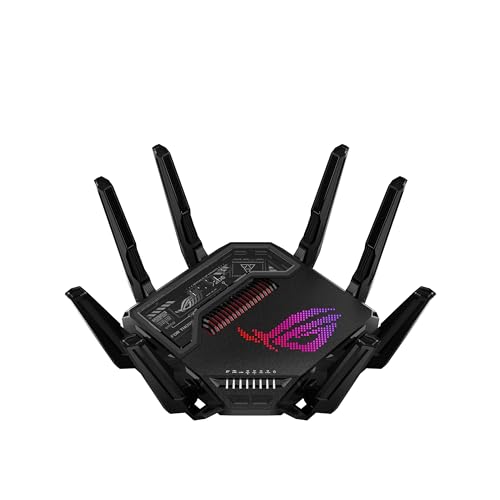The best Wi-Fi extender for concrete walls is the RangeXTD. It is a powerful, dual-band Wi-Fi extender that can extend the range of your Wi-Fi network by up to 10,000 square feet. It has five antennas and can reach speeds of up to 300Mbps.
The RangeXTD also has a built-in ethernet port so you can connect it directly to your router or modem.
If you are looking for the best Wi-Fi extender for concrete walls, then you have come to the right place. In this blog post, we will take a look at some of the best options on the market and help you choose the right one for your needs. One of the best Wi-Fi extenders for concrete walls is the TP-Link TL-WA850RE.
This device is designed to extend your Wi-Fi signal up to 500 meters away, making it ideal for large homes or offices. It also includes two external antennas that provide greater coverage and stability. Another great option is the Netgear Nighthawk X6S AC3000 Tri-Band WiFi Range Extender (EX8000).
This unit offers tri-band technology that provides up to 3 Gbps of speed, making it perfect for 4K streaming and gaming. It also includes six external antennas for maximum range and coverage. If you’re looking for a more affordable option, then consider the TP-Link N300 WiFi Extender (TL-WA855RE).
This unit is designed to extend your Wi-Fi signal up to 300 meters away and includes two external antennas for better coverage.
What is the Best WiFi Extender for Concrete Walls
If you have a concrete home or office and are looking for the best WiFi extender to improve your wireless signal, then you have come to the right place. In this article, we will take a look at some of the best WiFi extenders for concrete walls on the market today. First, let’s start with what a WiFi extender is and how it can help improve your wireless signal.
A WiFi extender is a device that connects to your existing wireless network and extends the range of that network. This can be extremely helpful if you have dead spots in your home or office where the signal is weak or nonexistent. By placing an extender in one of these areas, you can effectively extend your wireless network’s reach and eliminate those dead spots.
Now that we know what a WiFi extender is and how it works, let’s take a look at the best options on the market today. One option that gets great reviews is the TP-Link AX3000 WiFi 6 Range Extender. We will discuss it deeply below. keep reading
TP-Link AX3000 WiFi 6 Range Extender is the Best WiFi Extender for Concrete Walls
Are you tired of dead zones and slow internet speeds in certain areas of your home? Look no further than the TP-Link AX3000 WiFi 6 Range Extender.
This powerful device is designed to boost your WiFi signal throughout your entire house, ensuring that every corner is covered with lightning-fast internet. Gone are the days of frustratingly slow download speeds and constant buffering when streaming movies or playing online games.
With its cutting-edge WiFi 6 technology, the TP-Link AX3000 can deliver speeds up to three times faster than traditional WiFi extenders, making it a game-changer for anyone seeking a seamless and uninterrupted online experience.
Advantages and disadvantages of TP-Link AX3000 WiFi 6 Range Extender
Advantages:
- The TP-Link AX3000 WiFi 6 Range Extender offers faster and more reliable internet speeds, thanks to its advanced WiFi 6 technology.
- It extends the range of your existing WiFi network, ensuring better coverage throughout your home or office.
- With its dual-band feature, it can support multiple devices simultaneously without compromising speed or performance.
- The range extender is easy to set up and configure, making it user-friendly for both tech-savvy individuals and beginners.
- TP-Link provides excellent customer support and a warranty, ensuring peace of mind for users.
- Easy Setup. Guide Available
Disadvantages:
- The price of the TP-Link AX3000 WiFi 6 Range Extender may be higher compared to other range extenders on the market.
- Some users may find that the setup process can be slightly complicated or time-consuming.
Finally, the TP-Link AX3000 WiFi 6 Range Extender is a powerful and versatile device that addresses the need for a strong and reliable Wi-Fi signal throughout your home or office. With its next-generation technology and impressive range, it ensures seamless connectivity even in areas that were previously hard to reach.
The setup process is quick and easy, making it accessible to all users. Additionally, the range extender’s sleek design allows it to blend seamlessly into any environment. If you’re tired of dealing with weak Wi-Fi signals or dead zones in your space, invest in the TP-Link AX3000 WiFi 6 Range Extender and enjoy fast, uninterrupted internet wherever you go.
As someone who often struggles with weak WiFi signals in my home, I decided to give the TP-Link AX3000 WiFi 6 Range Extender a try.
I was impressed. Setup was a breeze thanks to the user-friendly instructions, and within minutes, I had it up and running. The range extender provides excellent coverage throughout my entire house, even reaching areas that were previously dead zones.
Plus, the WiFi speed is lightning-fast – perfect for streaming movies or playing online games without any lag. Overall, this range extender has greatly improved my internet experience at home and I highly recommend it.
How Do I Extend My WiFi Signal to Reach My Concrete Walled Home
If your home has concrete walls, you may have difficulty getting a strong WiFi signal. Here are some tips to help extend your WiFi signal:
1. Place your router in an open area. A router placed in a corner or behind furniture will have trouble broadcasting a signal through concrete walls.
2. Use a WiFi repeater or extender. These devices can amplify your WiFi signal and help it reach further into your home.
3. Purchase a higher-powered router. A more powerful router will be better able to broadcast a signal through thick walls.
4. Add an outdoor antenna to your router.
This will give your router the boost it needs to reach across your property with ease.
Frequently Asked Questions on Best WiFi Extender for Concrete Walls
1. What is a WiFi extender, and why is it needed for concrete walls?
A WiFi extender is a device that boosts and extends the range of your wireless network. It is needed for concrete walls because concrete can block and weaken WiFi signals, leading to poor connectivity in certain areas of your home.
2. Can you recommend the best WiFi extender for concrete walls?
There are several good options, such as the Netgear Nighthawk X6S, TP-Link RE650, and Linksys RE7000. The best choice depends on your specific needs and budget.
3. How does a WiFi extender work with concrete walls?
A WiFi extender works by receiving the existing WiFi signal, amplifying it, and then rebroadcasting it. This helps to overcome the signal attenuation caused by concrete walls.
4. What features should I look for in a WiFi extender for concrete walls?
Look for dual-band or tri-band support, multiple Ethernet ports, and support for the latest WiFi standards (e.g., 802.11ac or 802.11ax). Also, consider features like a mobile app for easy setup and management.
5. Is it better to go for a dual-band or tri-band WiFi extender for concrete walls?
Dual-band WiFi extenders are usually sufficient for most home users. Tri-band extenders provide an additional 5GHz band, which can help in high-density areas but may not be necessary for everyone.
6. What is the typical range I can expect from a WiFi extender in this scenario?
The range of a WiFi extender can vary, but most extenders can cover an additional 1,000 to 3,000 square feet, depending on the model and the signal strength.
7. Are there any specific considerations for setting up a WiFi extender in a home with concrete walls?
Place the extender midway between your router and the area with poor signal. Ensure there are minimal obstructions, and avoid interference from other electronic devices.
8. How do I configure and install a WiFi extender for optimal performance with concrete walls?
Follow the instructions provided with your extender. Usually, this involves connecting to the extender’s network and using a web interface or a mobile app to set it up.
9. Can I use a mesh WiFi system instead of a traditional WiFi extender for concrete walls?
Yes, a mesh WiFi system can also be effective. Mesh systems create a network of multiple nodes that work together to provide seamless coverage.
10. What’s the difference between a WiFi extender, a WiFi booster, and a WiFi repeater?
These terms are often used interchangeably, but they generally refer to devices that improve WiFi coverage. Extender and repeater usually have similar functions, while “booster” may imply signal enhancement without retransmission.
11. Are there any compatibility issues I should be aware of when choosing a WiFi extender for my router?
Ensure that your extender supports the same WiFi standard as your router (e.g., 802.11ac). It’s usually best to choose an extender from the same manufacturer as your router for compatibility.
12. Will a WiFi extender affect my internet speed, especially with concrete walls?
Extenders can reduce speed slightly due to signal transmission, but modern models minimize this effect. The benefits of improved coverage often outweigh the small speed reduction.
13. What security measures should I take when using a WiFi extender for concrete walls?
Set a strong password for your extender, and ensure it uses WPA3 encryption for the best security. Also, update your extender’s firmware regularly to patch any security vulnerabilities.
14. How do I troubleshoot common issues with WiFi extenders in this setup?
Common troubleshooting steps include relocating the extender, updating firmware, and ensuring it’s not experiencing interference from other devices.
15. Are there any DIY solutions or tricks to improve the WiFi signal through concrete walls without using an extender?
You can try repositioning your router, using WiFi signal-boosting apps, or upgrading your router’s antennas. However, these may not be as effective as a dedicated extender in a concrete-walled environment.
Is There a Special Type of WiFi Extender That Works Better With Concrete Walls
If you have a home or office with concrete walls, you may need a different type of WiFi extender than one that would work best in a traditional wood-frame structure. Concrete can block WiFi signals, so you will want an extender that’s designed to penetrate walls and other obstacles. The best WiFi extenders for concrete walls will use multiple antennas and advanced signal processing to extend your network’s reach.
They may also come with features like Ethernet ports and range boosters to further improve performance.
My WiFi Signal Does Not Seem to Reach My Garage – What Can I Do to Extend It
If your garage is far from your router or if there are walls or other obstacles in between, the signal may be too weak to reach. Here are some tips to extend your WiFi signal so you can enjoy a better connection in your garage. 1. Move your router closer to your garage. This is the simplest and most effective solution if the distance is the only issue.
2. Use a WiFi range extender. A range extender can amplify the signal and extend the range of your WiFi network.
3. Use powerline adapters. Powerline adapters use the electrical wiring in your home to create a second, stronger network signal that can reach further than WiFi alone.
4. Create a mesh network with multiple routers or access points.
By spreading out multiple devices throughout your home, you can create a stronger, more reliable WiFi network that covers more ground.
How Can I Ensure That My Outdoor Security Cameras Have a Strong Enough WiFi Signal
If you are looking to improve the WiFi signal for your outdoor security cameras, there are a few things you can do. First, make sure that the router is in a good location. If it’s too far away from the cameras, or if there are walls or other obstructions in between, that can weaken the signal.
You can also try moving the router closer to the cameras or even using a WiFi extender to boost the signal in that area. Another thing to keep in mind is interference from other devices that use WiFi. If you have a lot of devices on your network fighting for bandwidth, that can slow down everyone’s connection and make it harder for the cameras to get a strong signal.
So try to limit how many devices are connected at once, or upgrade to a faster internet package if possible. Finally, check with your camera manufacturer to see if there are any specific settings or firmware updates that could help improve their connection strength. They may have suggestions that are specific to your model of camera and will know best how to optimize it for performance.
Buying Guide For Best Wi-Fi Extender for Concrete Walls
Concrete walls can pose a significant challenge to your home’s WiFi coverage. To ensure a strong and reliable signal in every corner, selecting the right WiFi extender for concrete walls is crucial. This buying guide will help you make an informed choice:
- Assess Your Coverage Needs: Start by identifying the areas with weak or no WiFi signal. Measure the distance between your router and these locations to determine the range required.
- Compatibility: Ensure the extender is compatible with your existing router. Check for compatibility with WiFi standards (e.g., 802.11ac, 802.11ax) to ensure seamless integration.
- Dual-Band or Tri-Band: Most extenders are dual-band, supporting 2.4GHz and 5GHz. Tri-band extenders include an additional 5GHz band for better performance in high-traffic environments.
- Throughput and Speed: Look for an extender with high throughput and speed ratings. A model with AC or AX WiFi standards can provide faster data transfer and better performance.
- Range: Consider the square footage you need to cover. WiFi extender range can vary, so choose one with the appropriate coverage for your home’s size.
- Ethernet Ports: If you have wired devices to connect, select an extender with Ethernet ports. This allows you to directly link devices to the extender for a stable connection.
- Ease of Installation: Opt for an extender with an easy setup process. Many models offer mobile apps for simple installation, making the process user-friendly.
- Mesh WiFi vs. Traditional Extenders: Decide whether a mesh WiFi system or a traditional extender is more suitable. Mesh systems create a seamless network, while traditional extenders amplify the existing signal. Mesh systems offer consistent coverage but can be pricier.
- Security Features: Ensure the extender supports the latest security protocols, like WPA3, to safeguard your network from unauthorized access. Set a strong password for your extender to enhance security.
- Firmware Updates: Regular firmware updates are essential for maintaining security and performance. Verify that the manufacturer provides updates and ensure you install them promptly.
- Price and Budget: Determine your budget for a WiFi extender. Prices vary, so balance your requirements with your budget to find the right fit.
- Reviews and Recommendations: Research product reviews and seek recommendations from trusted sources and online forums. Real-world user experiences can provide valuable insights into an extender’s performance.
- Warranty and Support: Check the warranty and customer support options offered by the manufacturer. A reliable warranty and responsive customer support can be invaluable if issues arise.
- Test Placement: After purchasing, experiment with different placements to find the optimal location for the extender. Testing various positions helps avoid interference and obstructions.
- Future Expansion: Consider whether you might need to expand your network further in the future. Some WiFi extenders are part of a product family that can be extended if necessary.
By carefully considering these factors and conducting thorough research, you can select the best WiFi extender for concrete walls that meets your needs and provides consistent, high-speed WiFi coverage throughout your home.
Final Verdict
Are you having trouble with your Wi-Fi signal? If you have a concrete wall, that could be the reason why. A concrete wall can block your WiFi signal and make it difficult to stay connected.
But do not worry, there are ways to boost your signal. One way is to get a WiFi extender. A WiFi extender can amplify your signal and give you the coverage you need. There are many different types of WiFi extenders on the market, so it is important to choose one that’s right for you.
Another way to boost your signal is to use a powerline adapter. Powerline adapters use your home’s electrical wiring to extend your WiFi signal. They are easy to set up and they are a great option if you can’t or do not want to use a WiFi extender. If you are looking for ways to improve your WiFi signal, consider getting a WiFi extender or powerline adapter.
They are both affordable and easy to use, and they will help you stay connected in even the most challenging situations. Finally, I recommend the TP-Link AX3000 WiFi 6 Range Extender as the best overall.






Leave a Reply
You must be logged in to post a comment.